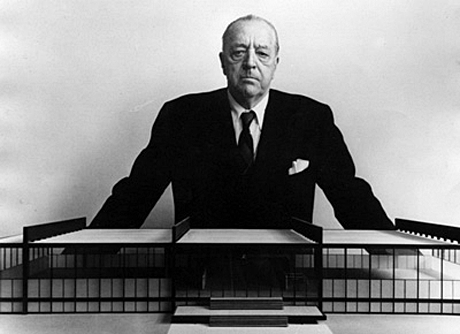On Monday, February 10, the Illinois Insitute of Technology officially launched the Mies Crown Hall Americas Prize.
The College of Architecture at Illinois Institute of Technology established the Americas Prize to recognize the most distinguished architectural works built on the North and South American continents.
The Prize will be awarded biennially within the masterpiece of S. R. Crown Hall, the organization’s Chicago-based laboratory and mission control center. The recipients of this new prize will be named by a jury of professional architects, curators, writers, editors, and other individuals whose work has had a lasting influence on the theory and practice of design.
It will be twofold in nature: it will recognize pre-eminence in architecture while additionally awarding a member of the profession’s younger generation, by way of the Americas Prize for Emerging Architecture, that harnesses the talent and ambition needed to devise and bring forth a truly outstanding first?/?early built work.
The Americas Prize is awarded to the best architectural work in the Americas completed in the preceding two years. The authors of the winning project receive an award of $50,000 and the MCHAP Chair at Illinois Institute of Technology for the following academic year. The MCHAP Chair(s) will establish research related to the theme of ‘rethinking the metropolis,’ will give a public lecture as part of the IIT College of Architecture’s lecture series, and engage in other agreed upon forms of academic research. The Americas Prize is announced at the Prize Ceremony in the fall of the award year.
The MCHAP Book will feature the Americas Prize Winner, in addition to the Finalists, the Americas Prize for Emerging Architecture Winner, and the Outstanding Projects recognized by the Jury. Through a series of diverse essays and articles, the book will highlight the architectural perspective that challenges the limits of the profession. The Americas Prize Winner will be profiled internationally in print, film and digital media.
The Americas Prize for Emerging Architecture is awarded to an outstanding built work in the Americas by an emerging practice completed within the preceding two years. The authors of the winning project receive an award of $25,000 USD and the MCHAP Research Professorship at Illinois Institute of Technology for the following academic year, where they will lead a studio related to ‘rethinking metropolis’. The Americas Prize for Emerging Architecture is announced at the Benefit Ceremony in the spring of the award year.
In addition to being featured in the MCHAP Book, the Americas Prize for Emerging Architecture Winner will receive a monograph focusing on their award-winning work.
For more information, visit: http://arch.iit.edu/prize/mchap?v=
Related Stories
Adaptive Reuse | Oct 22, 2024
Adaptive reuse project transforms 1840s-era mill building into rental housing
A recently opened multifamily property in Lawrence, Mass., is an adaptive reuse of an 1840s-era mill building. Stone Mill Lofts is one of the first all-electric mixed-income multifamily properties in Massachusetts. The all-electric building meets ambitious modern energy codes and stringent National Park Service historic preservation guidelines.
MFPRO+ News | Oct 22, 2024
Project financing tempers robust demand for multifamily housing
AEC Giants with multifamily practices report that the sector has been struggling over the past year, despite the high demand for housing, especially affordable products.
Performing Arts Centers | Oct 21, 2024
The New Jersey Performing Arts Center breaks ground on $336 million redevelopment of its 12-acre campus
In Newark, N.J., the New Jersey Performing Arts Center (NJPAC) has broken grown on the three-year, $336 million redevelopment of its 12-acre campus. The project will provide downtown Newark 350 mixed-income residential units, along with shops, restaurants, outdoor gathering spaces, and an education and community center with professional rehearsal spaces.
Office Buildings | Oct 21, 2024
3 surprises impacting the return to the office
This blog series exploring Gensler's Workplace Survey shows the top three surprises uncovered in the return to the office.
Healthcare Facilities | Oct 18, 2024
7 design lessons for future-proofing academic medical centers
HOK’s Paul Strohm and Scott Rawlings and Indiana University Health’s Jim Mladucky share strategies for planning and designing academic medical centers that remain impactful for generations to come.
Sports and Recreational Facilities | Oct 17, 2024
In the NIL era, colleges and universities are stepping up their sports facilities game
NIL policies have raised expectations among student-athletes about the quality of sports training and performing facilities, in ways that present new opportunities for AEC firms.
Codes and Standards | Oct 17, 2024
Austin, Texas, adopts AI-driven building permit software
After a successful pilot program, Austin has adopted AI-driven building permit software to speed up the building permitting process.
Resiliency | Oct 17, 2024
U.S. is reducing floodplain development in most areas
The perception that the U.S. has not been able to curb development in flood-prone areas is mostly inaccurate, according to new research from climate adaptation experts. A national survey of floodplain development between 2001 and 2019 found that fewer structures were built in floodplains than might be expected if cities were building at random.
Seismic Design | Oct 17, 2024
Calif. governor signs limited extension to hospital seismic retrofit mandate
Some California hospitals will have three additional years to comply with the state’s seismic retrofit mandate, after Gov. Gavin Newsom signed a bill extending the 2030 deadline.
MFPRO+ News | Oct 16, 2024
One-third of young adults say hurricanes like Helene and Milton will impact where they choose to live
Nearly one-third of U.S. residents between 18 and 34 years old say they are reconsidering where they want to move after seeing the damage wrought by Hurricane Helene, according to a Redfin report. About 15% of those over age 35 echoed their younger cohort’s sentiment.

















